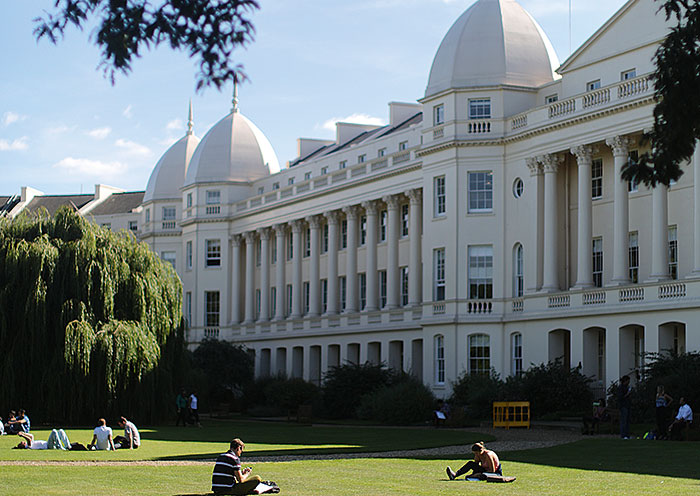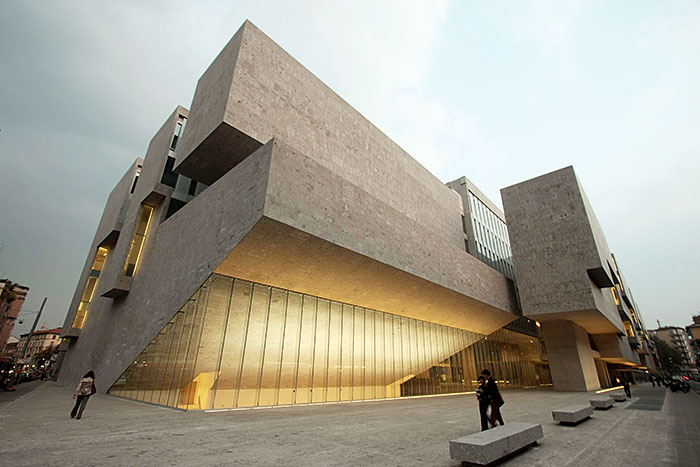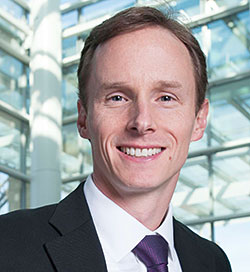Masters in management enjoys faster growth than the MBA

Roula Khalaf, Editor of the FT, selects her favourite stories in this weekly newsletter.
When Alexander Solms-Baruth told friends in his home town of Washington DC that he was moving to France to study for a masters in management, the common response was to ask why would he choose a degree outside the US and why something other than an MBA?
“A lot of my friends were genuinely concerned,” he recalls. “They told me I would have a harder time when coming back to the US if I did not have an MBA.”
They need not have worried. Before he had completed the year-long course at Grenoble Ecole de Management — taking half the time and costing a third of the US MBAs he had considered — he had job offers from carmaker Nissan, software group Salesforce and several early-stage tech ventures in Paris.
Solms-Baruth turned these down for a job at Zurich-based Soonsy because he felt that the tech start-up, which enables operators of free WiFi access points to gather data from their users, would enable him to progress faster up the management ladder. He became a member of Soonsy’s senior team within months of joining.
“My degree was a passport to getting to the management level,” Solms-Baruth says, adding that everyone he spoke to in interviews saw the masters in management (MiM) as equal to an MBA.
Many of those considering business school are making the same choice as Solms-Baruth, picking MiMs over other business school courses. The logic is that they are quicker to complete than more expensive MBA programmes and teach a similar broad range of leadership subjects and technical skills.

According to the latest data from the Graduate Management Admission Council, which administers the GMAT entrance exam for business schools, 58 per cent of European MiM programmes saw growth in applications last year. By contrast, only 43 per cent of full-time, two-year MBA courses globally enjoyed a rise in applications last year, down from 61 per cent in 2012.
About two-thirds of this year’s respondents to the annual survey of 1,000 prospective business school students by education research company CarringtonCrisp said they were applying to MiM courses rather than MBA programmes. Of these, 47 per cent agreed that an MiM would be considered just as valuable to an employer as an MBA.
CarringtonCrisp co-founder Andrew Crisp calls it “product replacement”. Ambitious twentysomethings, eager to accelerate their career trajectory, are choosing the cheaper one-year MiM over the MBA, which often takes two years, especially in the US.
“About a third of GMAT test-takers now use their scores to apply for masters [degrees] rather than an MBA course, which wasn’t the case a decade ago,” he says.
Cost of living is also among the leading considerations of prospective students when they decide where to study, according to CarringtonCrisp, while their choice of programme is most influenced by academic reputation and teaching quality, the research found.
“Despite data suggesting the MBA is a good return on investment, the fees look expensive up front,” Crisp says. “As a prospective student, you may also think that if you need an MBA later, your employer might pay for some or part of it [or] that the future of personal development is more likely to be based around short-course non-degree programmes delivered online.”

Tuition fee inflation is the most often cited reason for choosing a MiM over an MBA, CarringtonCrisp’s survey found. Crisp notes that an MiM degree at London Business School, with fees of £29,900, looks attractive compared with £75,100 for the MBA, which takes from 15 to 21 months. “Plus you get the London Business School brand on your CV at the start of your career.”
The institutions that are managing to maintain strong demand for both MiM and MBA courses are the highest ranked, most of which are in the US. The University of Michigan’s Ross School of Business is forecasting 22 per cent growth in applications for its MiM degree compared with last year. But demand for its two-year MBA course is growing at a similar pace, according to Scott DeRue, the school’s dean.

Prof DeRue notes that other US schools that offer MiMs, such as Kellogg School of Management in Illinois and Mendoza at the University of Notre Dame, Indiana, are aping the content of an MBA in their MiM curriculum, so that those who want to go on and take an MBA can do so in one year rather than two. The future will see a more “fluid relationship” between MiM and MBA degrees, Prof DeRue says, with students dipping into business school several times at key points in their lives.
“I do not envision the masters in management degree replacing the MBA,” he adds, suggesting that people will choose between the two depending on their experience at work.

Masters in management courses are riding a wave of globalisation in business education, where students from across the world vie for the best courses and value the ability to get ahead faster, according to Stefano Caselli, dean for international affairs at Bocconi University in Italy. Applications for Bocconi’s MiM have risen 10 per cent a year for at least a decade. This year close to 900 people were chasing 150 places, Prof Caselli says.
The MiM course has become a United Nations of students, he adds. Ten years ago fewer than 10 per cent of recruits were from outside the EU; today the proportion is two-thirds. The other change is the quality of prospective students, with each of this year’s applicants coming in the top 5 per cent of their class in their undergraduate degree, he says.

Prof Caselli predicts a decline in the number of lower-tier schools offering MBA courses, though not because of the success of the MiM courses. Rather, he feels that the MBA market is a mature one, in which there will be an inevitable flight to quality, whereas the MiM degree is still building its global market.
“What we are seeing is a segmentation of the market,” Prof Caselli says. “The MBA is still valid for someone with work experience, but if you are a young high-flyer, the masters in management is a gateway to giving your career a boost quickly.”
Comments